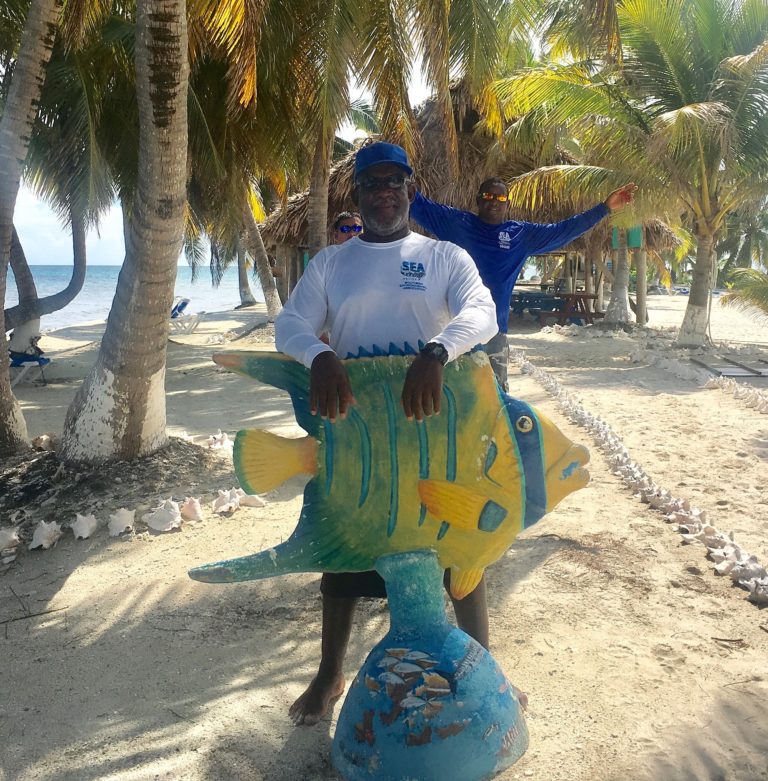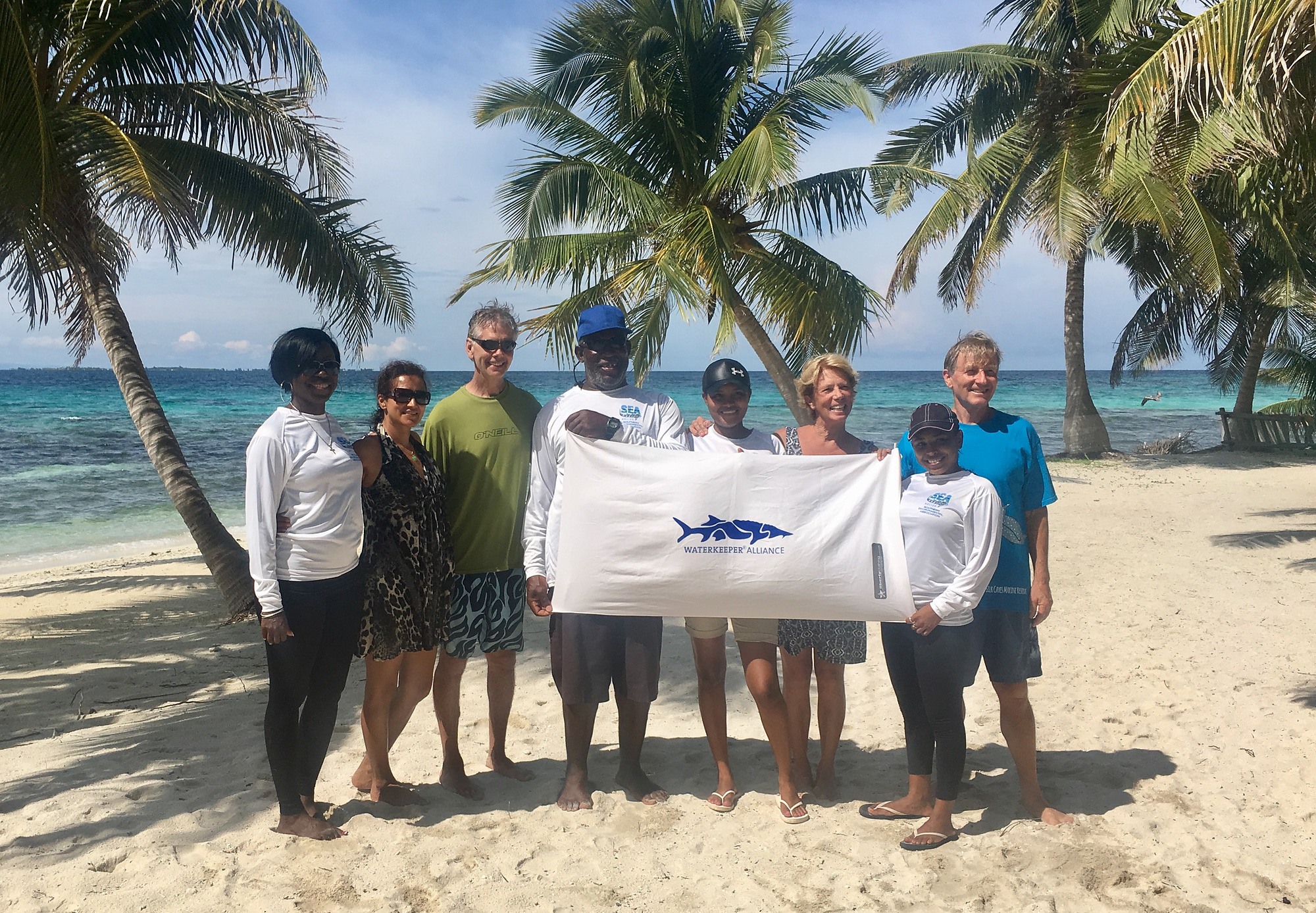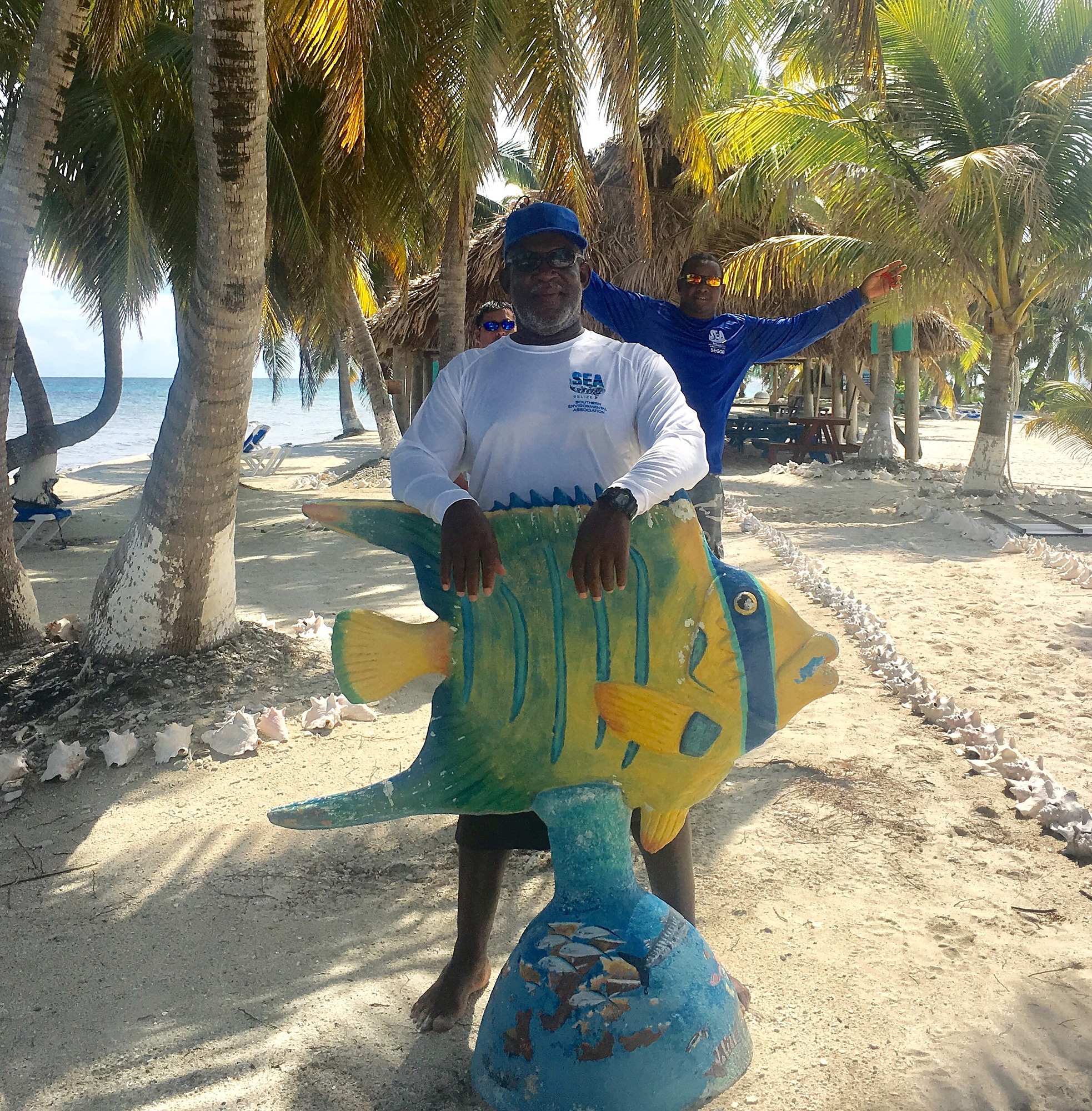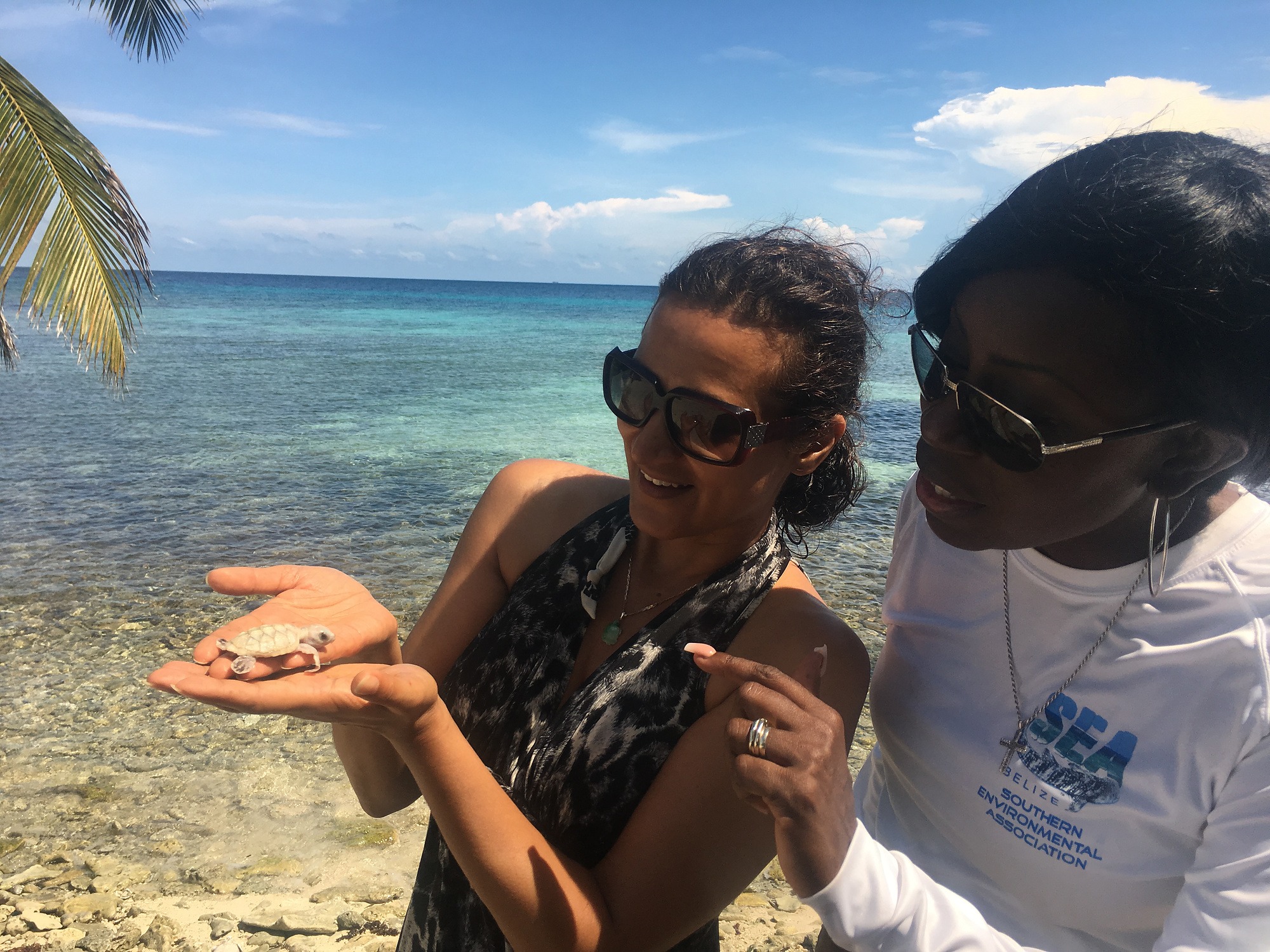
Belize — a small country in Central America bordered by Mexico to the north, Guatemala to the west and south, and the Caribbean Sea to the east — has a well-deserved reputation as a paradise on earth thanks to its crystal blue coastal waters, healthy mangrove lagoons, and lush rainforests full of exotic wildlife. But this paradise, like so many others, is under threat from development, overfishing, aquaculture, plastic pollution, and climate change.
Belize is home to about 367,000 people from a range of ethnic backgrounds including indigenous Mayans, descendants from Africa and India, German Mennonites, and Chinese merchants. It’s also home to Placencia Lagoon Waterkeeper, located on the Placencia Peninsula in southern Belize.
The development of this new Waterkeeper organization was made possible by Mandy Cabot and Peter Kjellerup, owners of the timeless and popular footwear company Dansko, a certified B Corporation that meets rigorous standards of social and environmental performance, accountability, and transparency. I met Mandy and Peter in 2015 when they supported and joined a team from Stroud Water Research Center, Wang Chu Waterkeeper and Waterkeeper Alliance in water quality monitoring in Bhutan. Knowing that they had a home in Belize, I recently reached out to Mandy and Peter to explore opportunities to develop a Waterkeeper organization there. Mandy and Peter are among the most environmentally conscious, active, and generous leaders of our time. They are strong advocates for sustainable development and cringe as much as we do when mangroves are destroyed. We are extremely grateful for their support of Placencia Lagoon Waterkeeper who is fighting destructive development practices around the lagoon, and advocating for it to become a national marine park. I am also extremely grateful for Mandy and Peter’s invitation to Placencia to meet the team earlier this month.
Placencia Lagoon Waterkeeper is sponsored by the Southern Environmental Association (SEA) Belize, and led by Arreini Palacio Morgan — a superstar born and raised in Belize City, educated at the University of the West Indies in Jamaica, and long-time resident of Placencia where she is thriving as a protector of the Caribbean waters of Belize.
With several, increasing threats from tourism development, vessel transportation and aquaculture runoffs, advocacy for the protection of this traditionally used lagoon is key. Joining Waterkeeper Alliance is an excellent step forward in building our capacity to conduct outreach and assisting with our advocacy efforts. — Arreini Palacio Morgan, Placencia Lagoon Waterkeeper, Belize

Arreini and her staff, including science and education rangers, work with community stakeholders to improve the management of the natural and cultural resources in Belize’s Southern Barrier Reef Complex. They provide environmental education and community development, patrol and monitor the waterways, and enforce the law.  Rangers are a critical staff component of SEA, and now to Placencia Lagoon Waterkeeper. One ranger, Matthew Nicolas, aka Captain TAMBA (shown to the left), is also empowered as a Fisheries Officer and has arrested many poachers. On a boat trip out to Laughing Bird Caye to experience the wonders of the marine park (including an albino Hawksbill turtle that had just hatched!) Captain TAMBA, once a local fisherman himself, told us that he knows all the tricks of illegal fishers and while he no longer hesitates to arrest them, he prides himself on treating everyone with respect.
Rangers are a critical staff component of SEA, and now to Placencia Lagoon Waterkeeper. One ranger, Matthew Nicolas, aka Captain TAMBA (shown to the left), is also empowered as a Fisheries Officer and has arrested many poachers. On a boat trip out to Laughing Bird Caye to experience the wonders of the marine park (including an albino Hawksbill turtle that had just hatched!) Captain TAMBA, once a local fisherman himself, told us that he knows all the tricks of illegal fishers and while he no longer hesitates to arrest them, he prides himself on treating everyone with respect.
Local artisanal fisherfolk lost their traditional livelihoods to overfishing, including by foreign fishing fleets, long before the introduction of local marine protected areas (MPAs). MPAs, where no fishing is allowed, are typically created around critical nursery habitat like reef and mangrove ecosystems. MPAs have become critical for the rehabilitation of fish and marine life in our seas and oceans in peril. But also critical to the success of MPAs is support for fisherfolk who have lost their traditional livelihoods, as well as support for their families and communities, including health care and education. This point was driven home to me by a good man named Antonio, once a local fisherman now selling handicrafts to tourists. Antonio understands the importance of MPAs and knows the work of SEA in establishing, patrolling and protecting MPAs in Southern Belize, but stressed to me that the local people need alternative livelihoods.

Waterkeepers around the world — including in the Bahamas, California, and Mexico — are no strangers to the need for marine protected areas, the plight of artisanal fisherfolk, and the need for alternative livelihoods. Thankfully Waterkeeper Organizations and Affiliates are also advocates for the sustainable tourism industry that can provide lucrative job opportunities for former fisherfolk. Such opportunities include recreational dive and legal fishing tour operations like those that have helped Amigos para la Conservación de Cabo Pulmo, ACCP, sponsor of Cabo Pulmo Coast Waterkeeper in Baja Mexico, in building one of the most successful marine protected areas on the planet.
Welcome to Waterkeeper Alliance Placencia Lagoon Waterkeeper! We are all excited to help you protect everyone’s right to clean water.